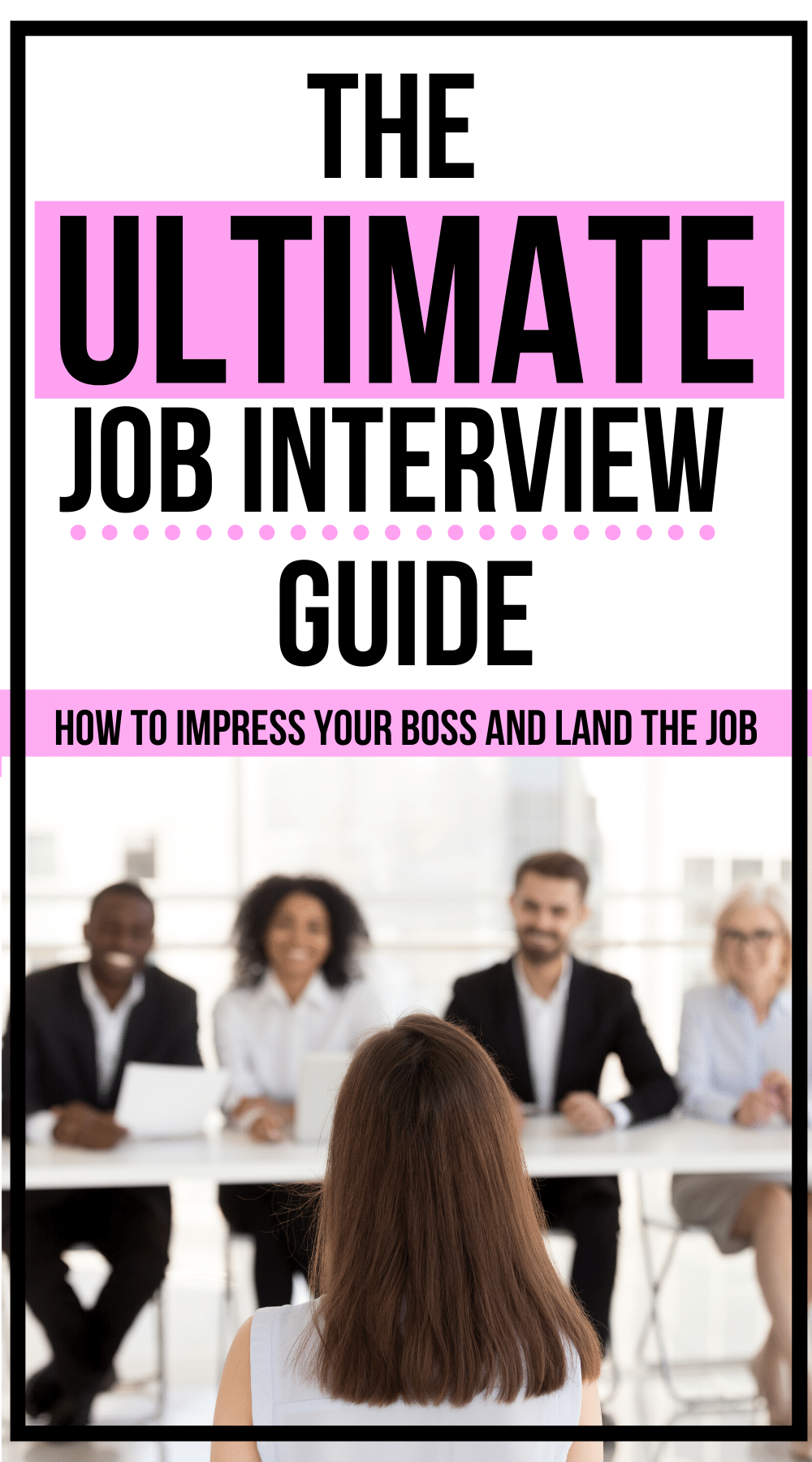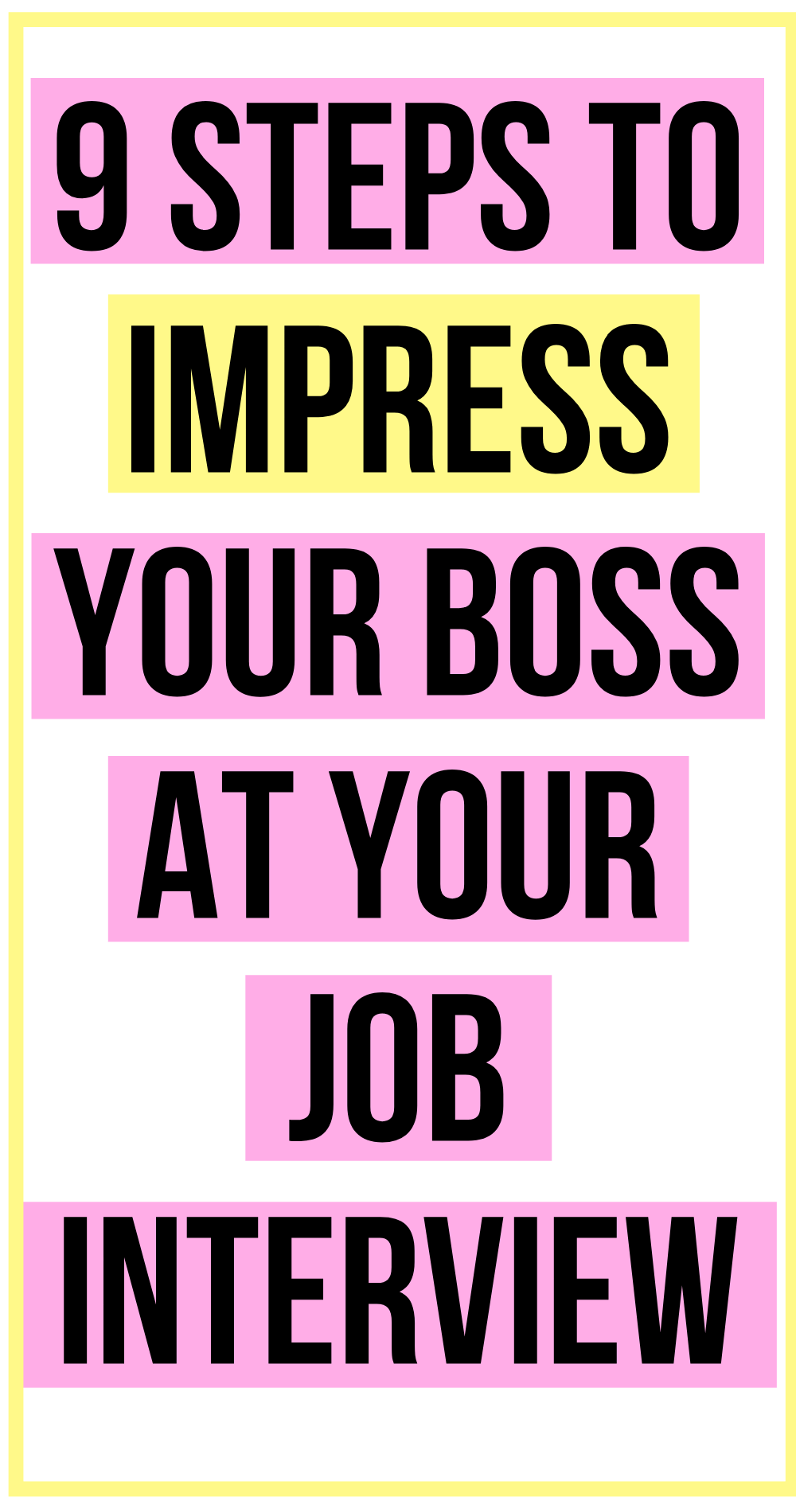
You’ve landed a job interview, and you’ll soon be on your way to audition for your next big gig – congratulations! But with the excitement comes nerves, with hopes that you’ll nail your interview and impress your potential future boss. Job interviews can no doubt be nerve-wracking and tough. But with the right preparation, you can set yourself up for success. We’ve rounded out the best job interview tips to help you land your next job. From everything you need to prepare for before the interview, what you should do during the interview, and finally, how to leave a lasting impression after the interview – we’ve got you covered. So, keep reading to find out how to ace your job interview!
Tips for Before the Job Interview
1. Do your research
Step one for your job interview preparation: do your research. The moment you find out that you’re scheduled in for an interview, get over to Google and begin researching.
Start by learning the ins and outs of the company you’re interviewing with.
- What industry is the company in?
- What’s the history of the company?
- Who are some of their main competitors?
- What’s the company’s business model?
- Are there other sub-brands of the company you should be aware of?
- What team are you interviewing to be on?
- If it’s a public company – what’s the current stock price? How were their annual earnings last year?
It’s better to know less, than more. It’s not likely you’ll get quizzed on background and history of the company, but it gives off a good impression when you show you’ve done research on the company.
Next, do some research on your interviewer.
- What’s their role?
- What’s their background?
- Are there any other interesting facts you can dig up?
Researching your interviewer is something that’ll help you feel more comfortable going into the interview. It’s always a good feeling to get some background on who’ll be making the decision on whether you’re hired or not. LinkedIn is a great way to get background on your interviewer’s education, previous work history – and potentially common interests you can bond over!
2. Come prepared
Once you’ve done your research, the next of our job interview tips is to come equipped to the interview.
Start by re-reading the job description for the role. Take the time to understand exactly what’s required for that role, who the ideal candidate is, and what skills are needed to succeed in that role. Now is a good time to also start preparing questions for the interviewer. It’s crucial you have questions prepared and ready to ask, which we’ll get to more in point 7 below.
Next, practice answering job interview questions and answers that will show how you’re the ideal candidate for the role. Start by practicing some of the more common interview questions and answers. Such as:
- Tell me about yourself
- What is your biggest strength?
- What is your biggest weakness?
- Where do you see yourself in 5 years?
- What motivates you?
- Why are you leaving your current job?
- What interests you about this role?
- Why should we hire you?
Once you’ve practiced your responses for the more common job interview questions, start preparing some answers using for behavioral interview questions.
Types of behavioral questions include examples like:
- Tell me about a time you had to deal with a difficult coworker.
- Describe a time you handled stress when you were under a lot of pressure.
- Give me an example of a time you made a mistake and had to deal with it.
The best way to prepare for behavioral interview questions is to use the STAR method.
The STAR Method
The STAR method is a great technique to answer behavioral questions (aka the questions that will probe deep into your psyche, to understand how you would respond and react in certain situation). STAR stands for:
- Situation: This is where you set the story or the scene of where and how the event took place (i.e. “I was in my third year of university working on a team project, where one of my team members didn’t show up to any of our meetings…”)
- Task: Here’s where you explain what your accountability was in that situation. (i.e. “I was chosen to be the team captain for the project, meaning I was ultimately responsible for our entire team’s outcome.”)
- Action: Explain step-by-step, exactly what you did. (i.e. “I decided to set up a 1:1 call with the team member that wasn’t performing. I voiced how it was necessary for them to play their part since it was a team effort. Then, I asked if there was anything getting in the way of them performing, and as the team captain if there was anything I could do to help. The individual expressed that the current team meeting dates were conflicting with his work schedule. I immediately found a new day that worked, and asked him if it worked on the spot. He agreed and apologized for his absence.”
- Result: What came out of it all? This is where you share the outcome of the situation. (i.e. As a result, he began showing up to our meetings and contributed like a true team player to the project. Our team developed a strong bond and we ultimately got an A on the project…”)
3. Pick your attire
Next, for job interview tips: it’s outfit time. It’s always safe to pick out an outfit for your job interview that doesn’t garner too much attention. Of course when it comes to style, to each their own, so don’t wear something where you don’t feel like you’re not yourself at all. But, just keep in mind that you do want the interviewer to be focusing on you and your answers, not your outfit.
Some things to keep in mind when picking out your job interview attire:
- Colors: It’s safe to stick to neutrals. Opt in for blacks, whites, greys, blues – and perhaps skip the magenta or bright neon colors (unless of course, you want to stand out)
- Cuts: Avoid low-cut tops and dresses, and avoid short skirts or dresses. You want to be comfortable – so if you find you have to keep pulling down your skirt or pulling up your top, it may cause distraction and throw you off.
- Style: Blazers, clean-cut blouses, suits, and anything with a professional vibe is always a good call. Avoid ripped jeans, t-shirts, and anything you’d wear on Sunday night lounging at home.
Tips for During the Job Interview
4. Show up early
Rushing into your interview is never any fun. Between catching your breath, wiping the sweat off your forehead, and heaving for water, showing up early is a much safer bet. Make an effort to show up to your interview 10-15 minutes before it begins.
Yes, those 10-15 minutes will be the most nerve-wracking part of all, anxiously waiting for the elevator doors to open to finally meet your interviewer / potential future boss. Fear not though, those 10-15 minutes are a perfect time to take a few deep breaths, stay cool, calm, and collected, and remember why you’re there in the first place.
Why are you there in the first place?
You’re there for a reason. This company clearly saw value in your resume and application, and believe you have something to offer the organization. So show them.
Elevator doors open, and it’s game time.
5. Stay calm and deliver
Once you meet your interviewer, be sure to give them a firm (but not so-firm) handshake and introduce yourself. Now’s the moment you’ve been waiting for. You’ve spent all this time preparing for this interview, and the moment is finally here.
If you find your voice getting shaky or you’re stumbling on your words a bit, take a breath. Remember that the person you’re talking to is after all, another human, so stay calm and show them what you’re made of!
As you begin the interview, be sure to focus on a few things:
- What value can you add to your boss, and how are you going to show that? We often focus on our own skills, but you need to prove to your boss that you will be their right hand man / woman ready to make their job easier
- Communication is everything. No matter how much you prepare and how ideal of a candidate you believe you are, you need to convey that. Interviews can get the best of us, sometimes causing us to ramble on, talk super fast, or point blank make absolutely no sense. Remember that you’re having a conversation with someone at the end of the day. You need to communicate clearly and concisely so they can understand how you’ll be an asset to the team
6. Be authentic
Of all the job interview tips, we just can’t stress this one enough. Be authentic. Personality is a huge part of why people hire who they do. Everyone wants to work with someone that they get along with and can have a positive working relationship with. Be sure to let your personality shine through as you’re doing your interview.
This will give both you and your interviewer a feel for culture. The culture of a company is one of the main reasons people choose to work where they do. You need to be a fit, and you need to feel that the organization is a fit. The only way to know if that’s the case, is to be your true, authentic, and unique self.
Tips for After the Job Interview
7. Ask good questions
Once the interview is done, your interviewer will ask you if you have any questions.
ALWAYS. ASK. QUESTIONS.
It’s such a letdown at the end of an interview, where the candidate being interviewed doesn’t ask a single question. It shows disinterest, and a lack of preparation.
The key here though, is you want to make sure you’re asking good questions. There may be answers to questions you’re just dying to know, but now’s not the time to ask them. For example, here are some questions you don’t want to ask:
- So, how much am I going to get paid?
- It looks like this role has some travel in it. That’s so cool! When could I start travelling and going to all the cool events?
- Do you mind if I work from home a few days a week?
- When can I start taking vacation?
- So, did I get the job?
Here are some better questions to ask:
- What does a typical day in this role look like?
- How would you describe your ideal candidate?
- What does career growth look like at this company?
- How can the person hired for this job, make your job easier? What would you want them doing from day 1?
- What do next steps look like?
8. Send a thank you note
Once you shake hands, thank your interviewer for their time, and part ways, be sure to send a thank you note within the next 24 hours. (One of the easier job interview tips).
You don’t want to shoot an email from your cellphone as soon as you get off the elevator, but wait a few hours (perhaps wait until that evening), and then send a genuine thank you note to your interviewer. A few things to include would be:
- Thank the interviewer for their time
- Re-affirm your interest in the role
- Let them know they can reach out if they need anything else from you
9. Follow-up
If your interviewer gave you a date on when you could expect to hear back, that day has come and you still haven’t heard back – it’s a good time to follow up and see where things are at in the process. If your interviewer didn’t give you a date, a good rule of thumb is to wait 5-10 business days before following up. The interview might still be interviewing candidates the few days following your interview, so be sure not to follow-up any less than 5 days after your interview. The last thing you want to do is annoy your potential future boss! Remember: interviewers are busy. Beyond completing interviews they’ve got deadlines to meet for their day-to-day job, other team members to manage, and more – so sometimes things do take a bit longer than expected. Your work is done! Now time to sit back, and wait for the good news to come.
Read more on career here:
- 7 Things You’re Doing at Work that are Totally Unprofessional
- How to Land Your Next Job Promotion
- A Guide for New Grads: How to Survive Your First Real Job
- Why You Need to Stop Apologizing at Work
- 5 Things You’re Doing that Annoy Everyone You Work With


